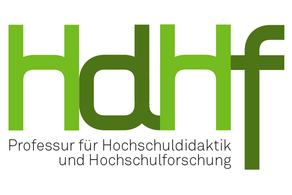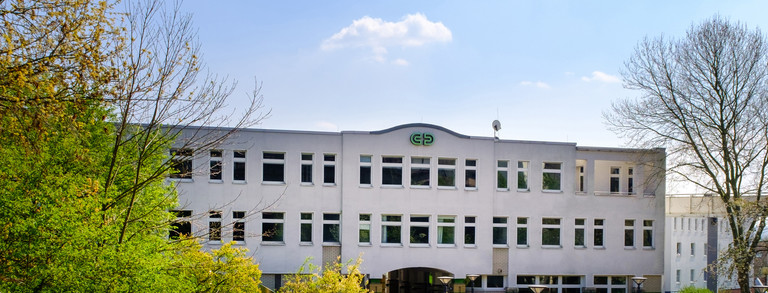Book Chapters
Forthcoming
Leišytė, L. (in press). Digital platforms and their usage in higher education human resource management. In D. A. Thomas & V. Laterza (Eds.), Critical perspectives on EdTech in higher education: Varieties of platformisation. Palgrave Macmillan.
2025
Carvalho, T., Leišytė, L., Queirós, A., & Diogo, S. (2025). Gender and decision-making in the managerial university: A comparative analysis of women's perceptions in Portugal and Lithuania. In L. Leišytė, M. Marquina, & G. A. Jones (Eds.), University governance, management and the academic profession: Transformations and challenges (pp. 153–172). Springer. https://doi.org/10.1007/978-3-031-86889-4_9
Jones, G. A., Leišytė, L., & Marquina, M. (2025). Governance, management and the academic profession: Themes and concluding observations. In L. Leišytė, M. Marquina, & G. A. Jones (Eds.), University governance, management and the academic profession: Transformations and challenges (pp. 223–234). Springer. https://doi.org/10.1007/978-3-031-86889-4_12
Leišytė, L. (2025). Conceptualising external governance of higher education: Towards multi-level and multi-actor hybrid arrangements. In L. Leišytė, M. Marquina, & G. A. Jones (Eds.), University governance, management and the academic profession: Transformations and challenges (pp. 13–28). Springer. https://doi.org/10.1007/978-3-031-86889-4_2
Leišytė, L. (2025). Higher education policy. In M. van Gerven, C. Rothmayr Allison, & K. Schubert (Eds.), Encyclopedia of public policy (Living reference work). Cham: Springer. https://doi.org/10.1007/978-3-030-90434-0_63-1
Leišytė, L., Jones, G. A., & Marquina, M. (2025). Trends in higher education governance and the academic profession. In L. Leišytė, M. Marquina, & G. A. Jones (Eds.), University governance, management and the academic profession: Transformations and challenges (pp. 3–10). Springer. https://doi.org/10.1007/978-3-031-86889-4_1
Pekşen, S., Rose, A.-L., Leišytė, L., & Želvys, R. (2025). The impact of managerialism on control and autonomy in the academic profession in Europe. In L. Leišytė, M. Marquina, & G. A. Jones (Eds.), University governance, management and the academic profession: Transformations and challenges (pp. 93–115). Springer. https://doi.org/10.1007/978-3-031-86889-4_6
Rose, A.-L., Papaioannou, P., Pekşen, S., Stolz, K., & Leišytė, L. (2025). Innovating business education through flipped classroom in Germany: liminal spaces and experiential learning. In M. A. Eklund & K. Graham (Eds.), Flipping the classroom with experiential and community-engaged learning in business: High-impact teaching practices in business education, volume 2 (pp. 209–224). Edward Elgar Publishing. https://doi.org/10.4337/9781035321629.00023
2024
Leišytė, L., & Rose, A.-L. (2024). Academic identities. In F. Darbellay (Ed.), Elgar encyclopedia of interdisciplinarity and transdisciplinarity (pp. 1–4). Edward Elgar Publishing. https://doi.org/10.4337/9781035317967.ch01
2023
Bégin-Caouette, O., Aarrevaara, T., Rose, A.-L., & Arimoto, A. (2023). International research collaboration practices and outcomes: A comparative analysis of academics' international research activities. In A. Çalıkoğlu, G. A. Jones, & Y. Kim (Eds.), Internationalization and the academic profession: Comparative perspectives (pp. 191–215). Cham: Springer International Publishing. https://doi.org/10.1007/978-3-031-26995-0_9
Dee, J. R., Leišytė, L., & van der Meulen, B. J. R. (2023). Conceptualizing higher education transformation: introduction to the Research Handbook on the Transformation of Higher Education. In L. Leišytė, J. R. Dee, & B. J. R. van der Meulen (Eds.), Research handbook on the transformation of higher education (pp. 2–22). Cheltenham: Edward Elgar Publishing. https://doi.org/10.4337/9781800378216.00006
Huang, F., Leišytė, L., Kuzhabekova, A., & Diogo, S. (2023). Academics with international educational and research experiences: Differences across countries? In A. Çalıkoğlu, G. A. Jones, & Y. Kim (Eds.), Internationalization and the academic profession: Comparative perspectives (pp. 113–137). Cham: Springer International Publishing. https://doi.org/10.1007/978-3-031-26995-0_6
Leišytė, L. (2023). Passive and active resistance to performance pressures among academics in UK universities. In L. Leišytė, J. R. Dee, & B. J. R. van der Meulen (Eds.), Research handbook on the transformation of higher education (pp. 351–365). Cheltenham: Edward Elgar Publishing. https://doi.org/10.4337/9781800378216.00033
Leišytė, L., Dee, J. R., & van der Meulen, B. J. R. (2023). Unpacking transformation in higher education and framing a future research agenda. In L. Leišytė, J. R. Dee, & B. J. R. van der Meulen (Eds.), Research handbook on the transformation of higher education (pp. 417–430). Cheltenham: Edward Elgar Publishing. https://doi.org/10.4337/9781800378216.00038
Leišytė, L., & Gozlan, C. (2023). The emergence of academic resistance platforms against new public management: towards "new" forms of movement organizing? In L. Leišytė, J. R. Dee, & B. J. R. van der Meulen (Eds.), Research handbook on the transformation of higher education (pp. 127–141). Cheltenham: Edward Elgar Publishing. https://doi.org/10.4337/9781800378216.00016
Stephenson, G. K., Pekşen, S., Reznik, N., Manatos, M. J., & Chen, R. J.-C. (2023). Internationalisation activities: The influence of governance and management models in Argentina, Canada, Lithuania, Portugal, and Taiwan. In A. Çalıkoğlu, G. A. Jones, & Y. Kim (Eds.), Internationalization and the academic profession: Comparative perspectives (pp. 37–65). Cham: Springer International Publishing. https://doi.org/10.1007/978-3-031-26995-0_3
2022
Flander, A., Kočar, S., Ćulum Ilić, B., Leišytė, L., Pekşen, S., & Rončević, N. (2022). Impact of internationalisation strategies on academics' international research activities: Case study of the three HE peripheries: Slovenia, Croatia and Lithuania. In M. Klemenčič (Ed.), From actors to reforms in European higher education: A Festschrift for Pavel Zgaga (pp. 313–336). Cham: Springer. https://doi.org/10.1007/978-3-031-09400-2_22
Leišytė, L. (2022). Performance management under surveillance capitalism in higher education. In C. Sarrico, M. J. Rosa, & T. Carvalho (Eds.), Research handbook on academic careers and managing academics (pp. 218–231). Cheltenham: Edward Elgar. https://doi.org/10.4337/9781839102639.00026
Leišytė, L., Pekşen, S., Rose, A.-L., & Želvys, R. (2022). The teaching-research nexus in the Lithuanian higher education compared to other European higher education systems. In F. Huang, T. Aarrevaara, & U. Teichler (Eds.), Teaching and research in the knowledge-based society: Historical and comparative perspectives (pp. 137–160). Cham: Springer. https://doi.org/10.1007/978-3-031-04439-7_8
2021
Leišytė, L., Rose, A.-L., Želvys, R., & Pekşen, S. (2021). The role of universities in the knowledge-based society in Lithuania. In T. Aarrevaara, M. Finkelstein, G. A. Jones, & J. Jung (Eds.), Universities in the knowledge society: The nexus of national systems of innovation and higher education (pp. 203–219). Cham: Springer. https://doi.org/10.1007/978-3-030-76579-8_12
Leišytė, L. (2021). University spin-offs. In L.-P. Dana (Ed.), World encyclopedia of entrepreneurship (2nd ed., pp. 637–641). Cheltenham: Edward Elgar. https://doi.org/10.4337/9781839104145.00081
2020
Leišytė, L., & Peksen, S. (2020). Nationale Evaluationssysteme für Forschung in Hochschulen – Gender Bias im europäischen Vergleich. In I. M. Welpe, J. Stumpf-Wollersheim, N. Folger, & M. Prenzel (Eds.), Leistungsbewertung in wissenschaftlichen Institutionen und Universitäten: Eine mehrdimensionale Perspektive (pp. 13–41). Berlin: De Gruyter. https://doi.org/10.1515/9783110689884-002
Rose, A.-L., Leišytė, L., Haertel, T., & Terkowsky, C. (2020). Zur Bedeutung von Emotionen in der hochschulischen Entrepreneurship Engineering Education. In I. Isenhardt, M. Petermann, M. Schmohr, A. E. Tekkaya, & U. Wilkesmann (Eds.), Lehren und Lernen in den Ingenieurwissenschaften (pp. 129–143). Bielefeld: wbv Media. https://doi.org/10.3278/6004805w129
Waheed, M., & Leišytė, L. (2020). Scandinavian students' perspective on learning from digital learning environment: The potential role of interactive quality. In C. Urrea (Ed.), Proceedings of the MIT LINC 2019 Conference (pp. 262–268). EPiC series in education science, Vol. 3. Manchester: EasyChair. https://doi.org/10.29007/x9w8
2019
Broucker, B., Leišytė, L., De Wit, K., & Verhoeven, J. C. (2019). Understanding higher education system reform: Practices, patterns and pathways. In B. Broucker, K. De Wit, J. C. Verhoeven, & L. Leišytė (Eds.), Higher education system reform: An international comparison after twenty years of Bologna (pp. 221-238). Leiden: Brill Sense. https://doi.org/10.1163/9789004400115_014
Haertel, T., Terkowsky, C., May, D., Wissemann, S., Leišytė, L., & Rose, A.-L. (2019). Kreativität und Entrepreneurship in der Hochschullehre: personen- und prozessorientierte Lerninhalte. In S. Kauffeld & J. Othmer (Eds.), Handbuch innovative Lehre (pp. 441-451). Wiesbaden: Springer. https://doi.org/10.1007/978-3-658-22797-5_33
Leišytė, L. (2019). Gender in European research policy. In D. Simon, S. Kuhlmann, J. Stamm, & W. Canzler (Eds.), Handbook on science and public policy (pp. 284-315). Cheltenham: Edward Elgar. https://doi.org/10.4337/9781784715946.00025
Leišytė, L., & Zeeman, N. (2019). Higher education faculty characteristics and trends in the United States and Europe. In A. Hynds (Ed.), Oxford bibliographies in education. New York: Oxford University Press. https://doi.org/10.1093/obo/9780199756810-0223
Leišytė, L., Rose, A.-L., & Želvys, R. (2019). Higher education reforms in Lithuania: Two decades after Bologna. In B. Broucker, K. De Wit, J. C. Verhoeven, & L. Leišytė (Eds.), Higher education system reform: An international comparison after twenty years of Bologna (pp. 179-195). Leiden: Brill Sense. https://doi.org/10.1163/9789004400115_012
Peksen, S., & Zeeman, N. (2019). Higher education system reform in Germany. In B. Broucker, K. De Wit, J. C. Verhoeven, & L. Leišytė (Eds.), Higher education system reform: An international comparison after twenty years of Bologna (pp. 37-52). Leiden: Brill Sense. https://doi.org/10.1163/9789004400115_003
Verhoeven, J. C., Leišytė, L., De Wit, K., & Broucker, B. (2019). An introduction to the study of higher education policy reforms. In B. Broucker, K. De Wit, J. C. Verhoeven, & L. Leišytė (Eds.), Higher education system reform: An international comparison after twenty years of Bologna (pp. 1-15). Leiden: Brill Sense. https://doi.org/10.1163/9789004400115_001
2018
Bender, C., Drolshagen, B., Rose, A.-L., Leišytė, L., & Rothenberg, B. (2018). Entwicklung einer inklusionsorientierten universitären Lehramtsausbildung – Maßnahmen der Organisationsentwicklung und Qualifizierung der Lehrenden. In S. Hußmann & B. Welzel (Eds.), DoProfiL – Das Dortmunder Profil für inklusionsorientierte Lehrerinnen- und Lehrerbildung (pp. 207–221). Münster: Waxmann. Online available
Hermstein, B., Hußmann, A., Rose, A.-L., & Vaskova, A. (2018). Beiträge der projektbegleitenden Evaluation für die Realisierung einer inklusionsorientierten Lehrerinnen- und Lehrerbildung. In S. Hußmann & B. Welzel (Eds.), DoProfiL – Das Dortmunder Profil für inklusionsorientierte Lehrerinnen- und Lehrerbildung (pp. 27–42). Münster: Waxmann. Online available
Leišytė, L. (2018). Higher education systems and institutions, Lithuania. In P. Teixeira & J. Shin (Eds.), Encyclopedia of international higher education systems and institutions (Living reference work, continuously updated edition). Dordrecht: Springer. https://doi.org/10.1007/978-94-017-9553-1_384-1
Leišytė, L. (2018). Innovation studies in higher education research. In P. Teixeira & J. Shin (Eds.), Encyclopedia of international higher education systems and institutions (Living reference work, continuously updated edition). Dordrecht: Springer. https://doi.org/10.1007/978-94-017-9553-1_172-1
Leišytė, L., Schumacher, B., & Welzel, B. (2018). Komplexität entfalten durch Veränderungsmanagement in einer Universität: Das Dortmunder Profil für inklusionsorientierte Lehrerinnen- und Lehrerbildung (DoProfiL). In S. Hußmann & B. Welzel (Eds.), DoProfiL – Das Dortmunder Profil für inklusionsorientierte Lehrerinnen- und Lehrerbildung (pp. 43–56). Münster: Waxmann. Online available
Leišytė, L., Rose, A.-L., & Schimmelpfenning, E. (2018). Lithuanian higher education: Between path dependence and change. In J. Huisman, A. Smolentseva, & I. Froumin (Eds.), 25 years of transformations of higher education systems in Post-Soviet countries: Reform and continuity (pp. 285–310). (Palgrave Studies in Global Higher Education). Cham: Palgrave Macmillan. https://doi.org/10.1007/978-3-319-52980-6_11
Terkowsky, C., Haertel, T., Rose, A.-L., Leišytė, L., & May, D. (2018). Nager avec les requins sans se faire dévorer: Comment les étudiants en ingénierie peuvent apprendre à être créatifs, à développer un esprit d’entreprise et à innover. In D. Lemaître (Ed.), Formation des ingénieurs à l’innovation (pp. 159–188). (Collection: innovation, entrepreneuriat et gestion). London: ISTE. Further information on the volume
Terkowsky, C., Haertel, T., Rose, A.-L., Leišytė, L., & May, D. (2018). Swimming with sharks without being eaten: How engineering students can learn creativity, entrepreneurial thinking and innovation. In D. Lemaître (Ed.), Training engineers for innovation (pp. 147–176). (Innovation, entrepreneurship and management series). London: ISTE. https://doi.org/10.1002/9781119563938.ch8
2017
Leišytė, L., & Hosch-Dayican, B. (2017). Gender and academic work at a Dutch university. In H. Eggins (Ed.), The changing role of women in higher education: Academic and leadership issues (pp. 95–117). Cham: Springer International Publishing Switzerland. https://doi.org/10.1007/978-3-319-42436-1_5
Rose, A.-L., & Leišytė, L. (2017). Integrating international academic staff into the local academic context in Lithuania and Estonia. In M. Yudkevich, P. G. Altbach, & L. E. Rumbley (Eds.), International faculty in higher education: Comparative perspectives on recruitment, integration, and impact (pp. 101–123). New York: Routledge. Further information on the book chapter at google books
2016
Broucker, B., De Wit, K., & Leišytė, L. (2016). Higher education reform: A systematic comparison of ten countries from a new public management perspective. In R. M. O. Pritchard, A. Pausits, & J. Williams (Eds.), Positioning higher education institutions: From here to there (pp. 19–40). Rotterdam, Boston, Taipei: Sense Publishers.
Dee, J., & Leišytė, L. (2016). Organizational learning in higher education institutions: Theories, frameworks, and a potential research agenda. In M. B. Paulsen (Ed.), Higher education: Handbook of theory and research, 31 (pp. 275–348). Cham: Springer. https://doi.org/10.1007/978-3-319-26829-3_6
Leišytė, L., & Hosch-Dayican, B. (2016). Boundary crossing and maintenance among UK and Dutch bioscientists: Towards hybrid identities of academic entrepreneurs. In L. Leišytė, & U. Wilkesmann (Eds.), Organizing academic work in higher education: Teaching, learning, and identities (pp. 223–242). Abingdon: Routledge.
Leišytė, L. (2016). Bridging the duality between universities and the academic profession: A tale of protected spaces, strategic gaming, and institutional entrepreneurs. In L. Leišytė, & U. Wilkesmann (Eds.), Organizing academic work in higher education: Teaching, learning, and identities (pp. 55–67). Abingdon: Routledge.
Leišytė, L., & Wilkesmann, U. (2016). Organizing academic work in higher education: Teaching, learning, and identities – An introduction. In L. Leišytė, & U. Wilkesmann (Eds.), Organizing academic work in higher education: Teaching, learning, and identities (pp. 1–10). Abingdon: Routledge.
Leišytė, L. (2016). Veränderungen im wissenschaftlichen Arbeiten: Schlussfolgerungen für akademische und organisationale Rollen. In M. Heiner, B. Baumert, S. Dany, T. Haertel, M. Quellmelz, & C. Terkowsky (Eds.), Was ist "Gute Lehre"?: Perspektiven der Hochschuldidaktik (pp. 151–168). (Blickpunkt Hochschuldidaktik, No. 129). Bielefeld : Bertelsmann.
May, D., Hosch-Dayican, B., Leišytė, L., Lensing, K., Sigl, L., & Terkowsky, C. (2016). Entrepreneurship and gender in higher engineering education in Germany. In S. Frerich et al. (Eds.), Engineering Education 4.0 (pp. 957–967). Cham: Springer. https://doi.org/10.1007/978-3-319-46916-4_78
2015
Logermann, F., & Leišytė, L. (2015). Students as stakeholders in the policy context of the European standards and guidelines for quality assurance in higher education institutions. In A. Curaj, L. Matei, R. Pricopie, J. Salmi, & P. Scott (Eds.), The European higher education area: Between critical reflections and future policies (pp. 685–701). Cham: Springer. https://doi.org/10.1007/978-3-319-20877-0_43
Leišytė, L. (2015). Changing academic identities in the context of a managerial university – Bridging the duality between professions and organizations: Evidence from the U.S. and Europe. In W. K. Cummings, & U. Teichler (Eds.), The relevance of academic work in comparative perspective (pp. 59–73). Dordrecht: Springer International Publishing.
2014
Leišytė, L., & Westerheijden, D. (2014). Stakeholders and quality assurance in higher education. In H. Eggins, Heather (Ed.), Drivers and Barriers to Achieving Quality in Higher Education (pp. 83–98). Rotterdam: Sense Publishers.
2012
Leišytė, L., & Dee, J. (2012). Understanding academic work in a changing institutional environment: Faculty autonomy, productivity and identity in Europe and the United States. In J. C. Smart, & M. Paulsen (Eds.), Higher education: Handbook of theory and research 27 (pp. 123–206). Dordrecht: Springer. https://doi.org/10.1007/978-94-007-2950-6_3
2011
Leišytė, L., & Enders, J. (2011). The strategic responses of English and Dutch university life scientists to the changes in their institutional environments. In J. Enders, H. de Boer, & D. Westerheijden (Eds.), Reform of higher education in Europe (pp. 143–157). Rotterdam: Sense Publishers. https://doi.org/10.1007/978-94-6091-555-0_9
2010
de Boer, H. F., Enders, J., & Leišytė, L. (2010). Public sector reform in Dutch higher education: the organizational transformation of the university. In Studies in educational leadership (S. 46–60). Shanghai Educational Publishing House.
Kehm, B., & Leišytė, L. (2010). Effects of new governance on research in humanities: The example of medieval history. In D. Jansen (Ed.), Governance and performance in the German public research sector: Disciplinary differences (pp. 73–90). Dordrecht: Springer. https://doi.org/10.1007/978-90-481-9139-0_4
Leišytė, L., Enders, J., & de Boer, H. (2010). Mediating problem choice: Academic researchers' responses to changes in their institutional environment. In R. Whitley, L. Engwall, & J. Gläser (Eds.), Reconfiguring knowledge production: Changing authority relationships in the sciences and their consequences for intellectual innovation (pp. 266–290). Oxford: Oxford University Press. https://doi.org/10.1093/acprof:oso/9780199590193.003.0009
2009
Leišytė, L. (2009). Academic output preferences in the context of changing higher education and research governance arrangements. In P. Clancy, & D. D. Dill (Eds.), The research mission of the university: Policy reforms and institutional response (pp. 133–152). Rotterdam: Sense Publishers. https://doi.org/10.1163/9789460910135_008
Leišytė, L., Enders, J., & de Boer, H. (2009). Balancing different audiences: Experiences of Dutch academics. In A. Brew, & L. Lucas (Eds.), Academic research and researchers: Policy and practice (pp. 117–130). Maidenhead: Society for Research into Higher Education; Open University Press.
Enders, J., de Boer, H., & Leišytė, L. (2009). New public management and the academic profession: The rationalisation of academic work revisited. In J. Enders, & E. de Weert (Eds.), The changing face of academic life: Analytical and comparative perspectives (pp. 36–57). Basingstoke: Palgrave MacMillian. https://doi.org/10.1057/9780230242166_3
2008
Leišytė, L. (2008). The effects of new public management on research practices in English and Dutch universities. In H. Vessuri, & U. Teichler (Eds.), Universities as centres of research and knowledge creation: An endangered species? (pp. 189–200). Rotterdam: Sense Publishers.
Enders, J., de Boer, H., & Leišytė, L. (2008). On striking the right notes: Shifts in governance and the organisational transformation of universities. In A. Amaral, J. Bleiklie, & C. Musselin (Eds.), From governance to identity: A Festschrift for Mary Henkel (pp. 113–129). (Higher Education Dynamics, Vol. 24). Dordrecht: Springer. https://doi.org/10.1007/978-1-4020-8994-7_9
2006
de Boer, H., Leišytė, L., & Enders, J. (2006). The Netherlands – 'Steering from a distance'. In B. M. Kehm, & U. Lanzendorf (Eds.), Reforming university governance: Changing conditions for research in four European countries (pp. 59–96). Bonn: Lemmens.
Leišytė, L., de Boer, H., & Enders, J. (2006). England – The prototype of the 'evaluative state'. In B. M. Kehm, & U. Lanzendorf (Eds.), Reforming university governance: Changing conditions for research in four European countries (pp. 21–57). Bonn: Lemmens.





